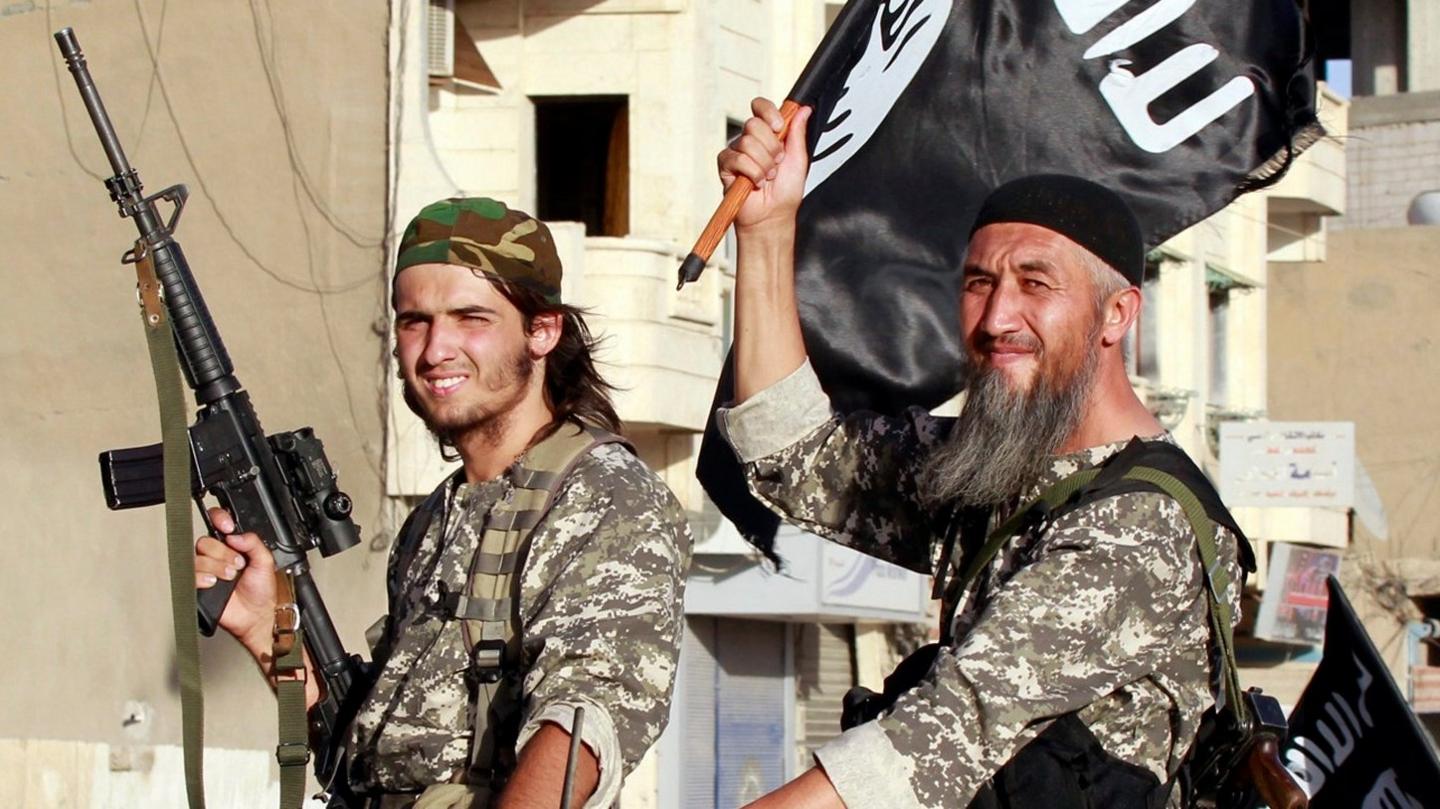No ransom payments to terrorists, Cameron tells Nato
- Published
"We won't pay ransoms to terrorists who kidnap our citizens"
David Cameron has told fellow Nato leaders they should not pay ransoms to terrorists who kidnap their citizens.
He said militant groups like Islamic State (IS), which is holding a Briton hostage, use ransom money for weapons, kidnappings and plots around the world.
Speaking on the first day of the Nato summit in Newport, the prime minister reminded leaders of commitments agreed last year not to pay terrorist ransoms.
During the day, he repeatedly refused to rule out UK air strikes against IS.
But he said any UK action must be part of a "fully formed strategy" including the Iraqi government, Kurdish authorities and other states in the region.
What are the UK's options to help David Haines? Frank Gardner reports
IS has threatened to kill British aid worker David Haines, whom it has been holding for more than a year, unless US air strikes on its positions in Iraq stop.
Mr Haines, a 44-year-old father of two from Perth, was taken hostage in Syria in March 2013.
Mr Cameron said he understood the UK's policy of not paying ransoms was "difficult" for the families of hostages, and he said he was "personally supervising" efforts to free Mr Haines.
'Utterly self-defeating'
The two-day Nato summit in Newport began on Thursday and, speaking at a gala dinner at Cardiff Castle on Thursday evening, Mr Cameron reminded fellow leaders of commitments agreed at last year's G8 summit not to pay ransoms.
The UK government has always said it will not pay ransoms, but hostages from other countries have been released, allegedly after large sums were paid.
Speaking before the dinner, Mr Cameron said such payments were "utterly self-defeating"
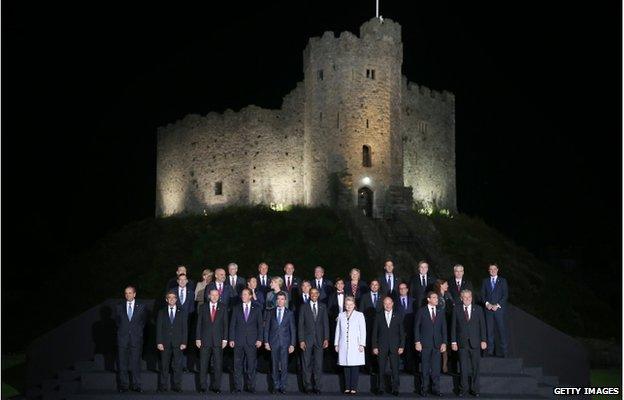
World leaders gathered for a dinner at Cardiff Castle on Thursday evening
"It is worse than self-defeating, it is actually a risk to us back at home," he added.
"All those people who signed these declarations know that what matters is not your signature on a declaration but not letting money be paid to terrorist kidnappers, because that money goes into arms, it goes into weapons, it goes into terror plots, it goes into more kidnaps."
IS, which has seized large areas of Iraq and Syria and declared a new caliphate - or Islamic state - has killed two US hostages in recent weeks.
Tory MPs canvassed
Mr Cameron said Britain would use "everything we have in our armoury" to defeat IS
"I think sometimes people think that there is no strategy unless it simply consists of air strikes," he said.
"That is not the case. What it needs is a fully formed strategy to squeeze this from every angle.
"That is what you are getting from this conference."
He said any action must not be "Western intervention over the heads of neighbouring states".
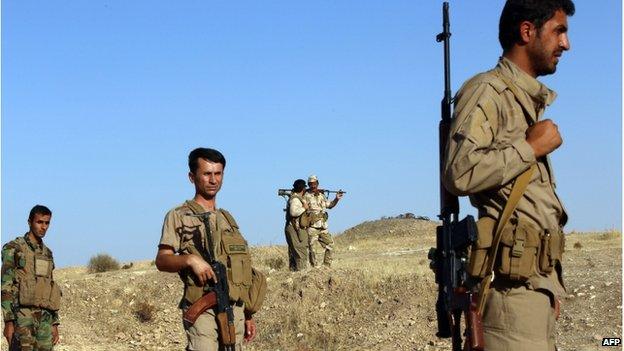
Mr Cameron said anti-IS action must be in co-operation with local forces, such as Kurdish fighters
Asked if strikes could be launched without Syrian backing, Mr Cameron said President Assad's government was "illegitimate" because of its "war crimes".
The BBC understands Conservative MPs are being canvassed by party whips for their views on military action against IS.
Labour leader Ed Miliband said he "would look at the merits" of any British strike the government proposed, while Deputy Prime Minister Nick Clegg said any air strikes "would have to be part of a wider approach which hasn't been assembled yet".
- Published6 September 2014
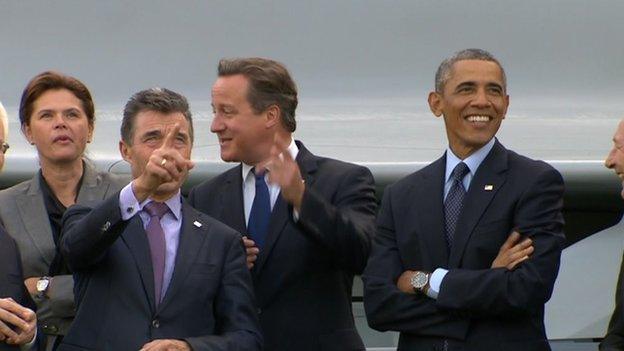
- Published4 September 2014
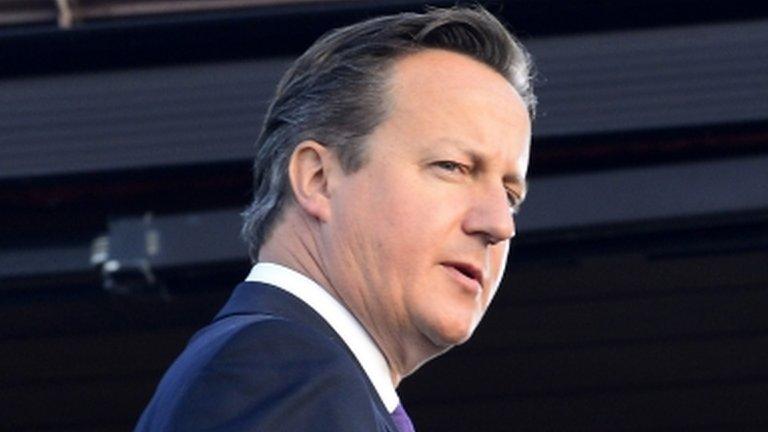
- Published4 September 2014
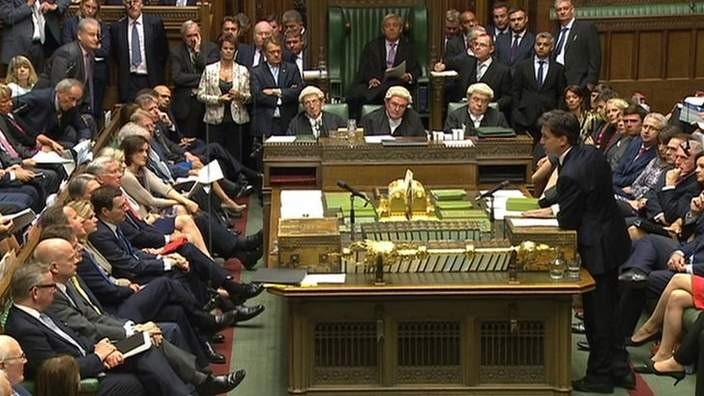
- Published4 September 2014
- Published4 September 2014
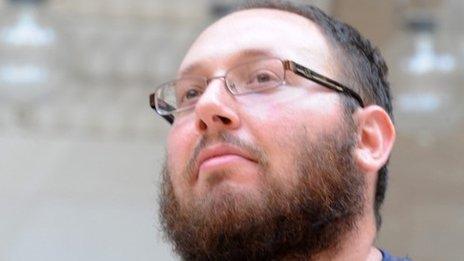
- Published3 September 2014
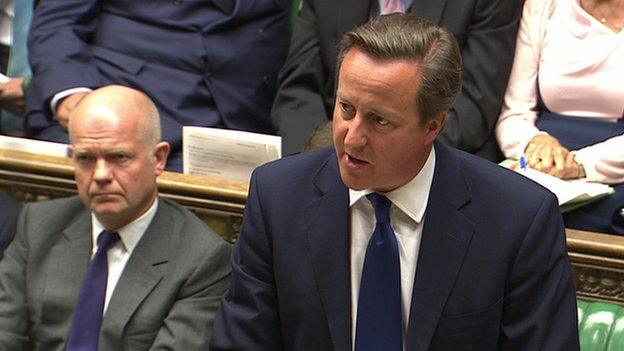
- Published4 September 2014
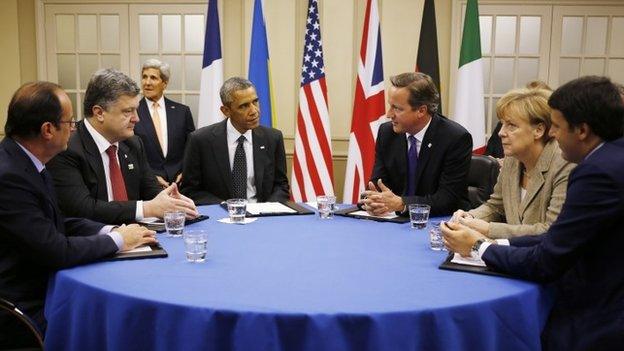
- Published2 December 2015
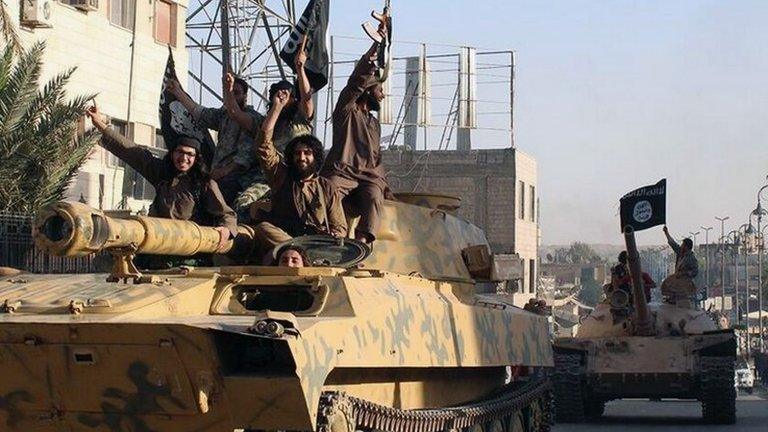
- Published3 September 2014
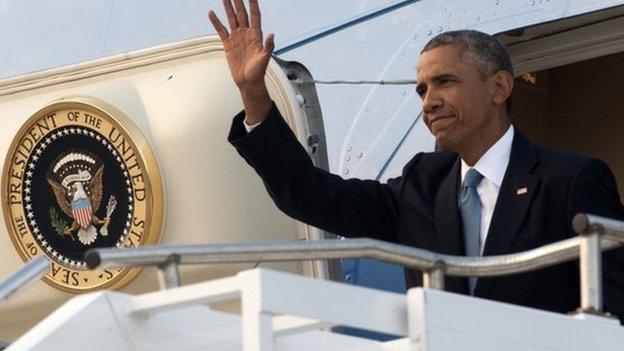
- Published3 September 2014
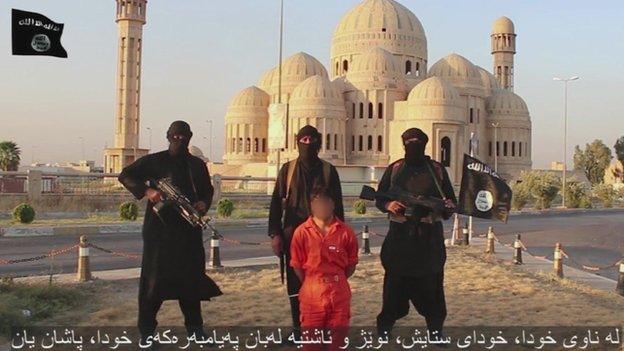
- Published3 September 2014
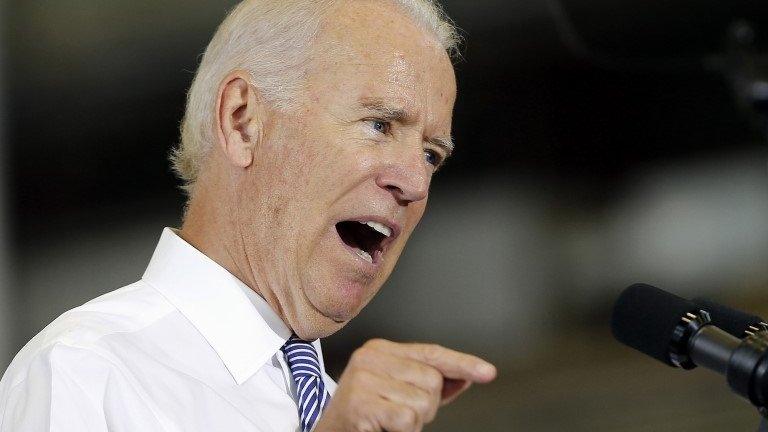
- Published3 September 2014
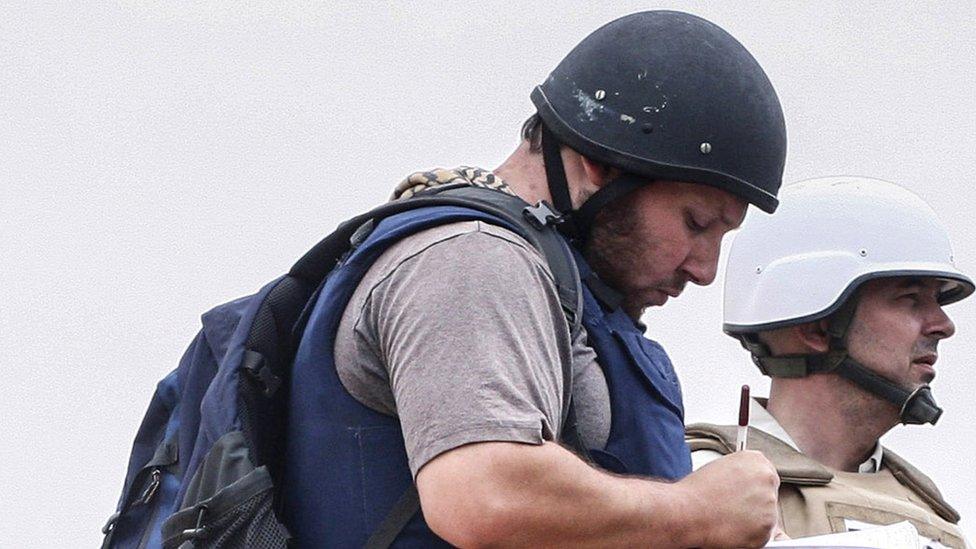
- Published3 September 2014
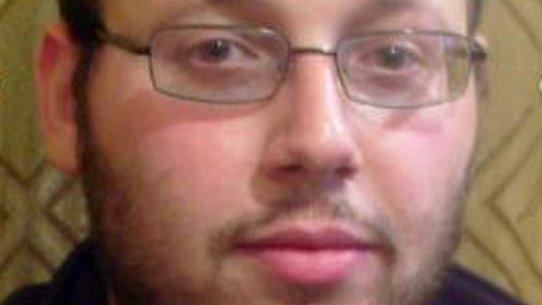
- Published28 August 2014
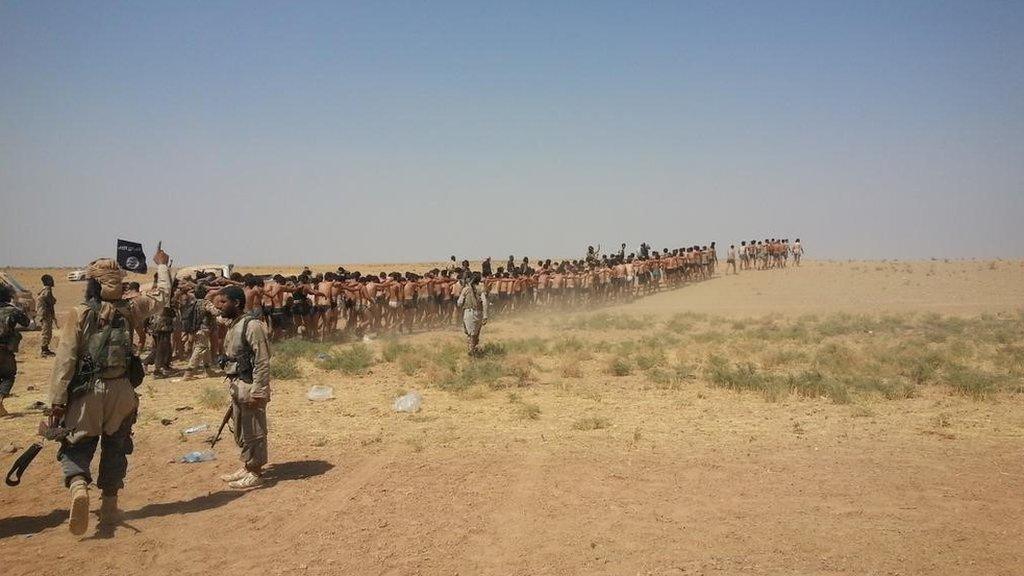
- Published11 August 2014
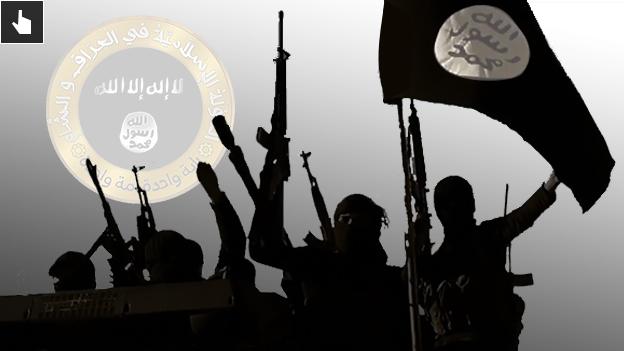
- Published1 September 2014
